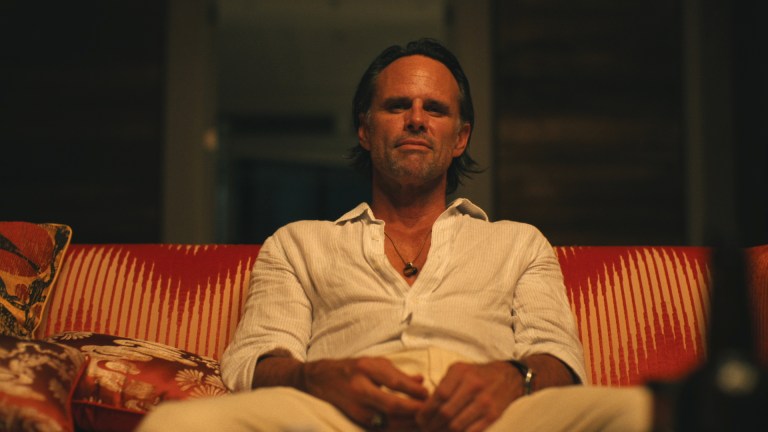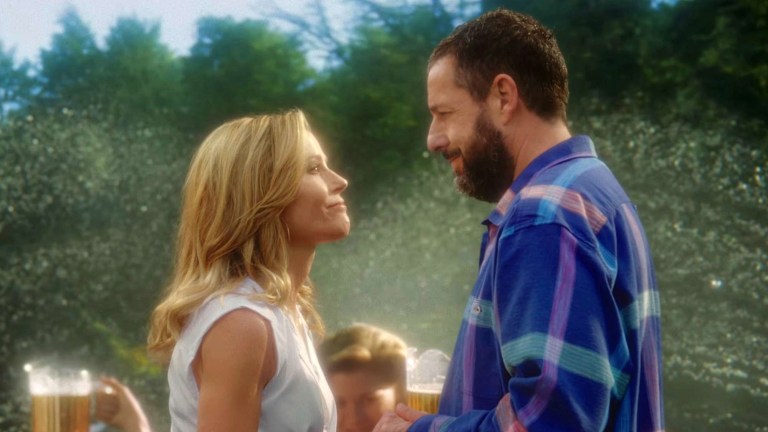
Why I Only Date Southern Gentlemen
Perhaps in a childish, roller-coaster-thrill kind of way we like people who don't treat us very well, but when we think about who is really worth our time and our love, it is not that kind of person. At least, it shouldn't be.
My friends have always referred to my boyfriends as “nice.” And it’s true, every guy I’ve dated (with perhaps one rule-proving exception of whom I swiftly rid myself) has been kind, generous, thoughtful, respectful, and polite — generally everything that falls under the “nice” umbrella. But when my friends say it — whether male or female — it sounds almost like an insult. It is said with just half a sneer, as if to imply that “nice” is simply a euphemism for “lame,” “weak,” or “not very masculine.” Which upsets me deeply, as, for me, there is no more important a quality in a potential significant other — in anyone, really, but certainly the man I’d be giving my romantic attentions to — than having an all-around good foundation of human decency.
My fellow Thought Catalog contributor, Jack Cazir, published a piece earlier this month that serves as a manifesto of sorts for the proverbial Good Guy — or, as he terms it, the Southern Gentleman. The Southern Gentleman doesn’t have to be southern, of course, but he embodies the characteristics that traditionally defined one: generous, patient, restrained, intelligent, respectful, and kind. To see a twenty-something man set out such a clear, concise, simple set of guidelines for being this man that we’ve come to regard as unicorn-level-rare is disarming, to say the least. But as someone who’s always sought out and spent my time with the men Cazir terms the Southern Gentleman, I am quite glad that the gauntlet has been thrown.
There is a deafening cry of late that chivalry, romance, and courtship went the way of the dodo sometime in the early nineties — perhaps with the rise of grunge and Liv Tyler, no one quite knows. As men become more and more lost in terms of societal role and expected behavior, as they bob endlessly in a sea of overwhelming choice and little-to-no pressure, it’s no surprise that ridding themselves of the hassle of courtship would be high on the list. Why date, why charm, why pursue, when you can string a girl along for what you want and dump her the second she gets too “needy?” But not all men are defined by Call of Duty and perpetually Cheeto-dusted fingers. Far from it. As Cazir points out, many men still take immense pride in treating others (including those they pursue romantically) with the utmost respect.
And these men, though perhaps fewer and farther between than a few generations ago, are worth all the more by continuing to embrace the importance of respect and honor even when it is not explicitly required of them. The so-called “nice” guys I date are such because pulling out a chair, holding a door, breaking up a fight, asking questions, and listening to answers are things that are important to them — regardless of who does or doesn’t require it. And, as Cazir mentions, this type of man is separated in spirit from the rest — not in social status or earnings. Whether a man is working doubles at Starbucks or excelling at a Fortune 500 company, it is the attitude and motivation behind what he does that counts. It is easy to lose sight of the true distinction between the two — that someone can be trying and struggling, versus succeeding with relative ease — and renders the difference between the Southern Gentleman and those simply rewarded by society at large all the more hard to see.
But when we mourn the loss of this chivalry and tradition, we’re not so much mourning that they don’t treat us a certain way as women, we mourn that they don’t treat us a certain way as someone they are courting. Courtship in general — no matter which sexes are involved — is a dying art. Taking the time to slowly get to know someone, to put your best foot forward, to learn what they like (and how they are different from you) and to accommodate that, is something that we rarely consider anymore. The courting period is an essential one, and as it gets blurrier, so does that butterfly-in-the-stomach-fueled need to embrace it for what it is. When men treat us differently than they treat their bros, it is out of respect and appreciation for the fact that we may not want the same things. We may place value on things that they don’t, such as holding doors open, calling back within a 48-hour-period, or watching The Notebook for the forty-seventh time in a row.
And when we date a man who treats us like crap, who plays that sexy emotional evasion game, that doesn’t respect our feelings or treat us like we’re special, we’re telling him that it’s all we deserve. We’re telling ourselves that’s all we deserve. And, perhaps most dangerously of all, we’re telling men in general that that is what we want— that it is what we find attractive. Perhaps in a childish, roller-coaster-thrill kind of way we like people who don’t treat us very well, but when we think about who is really worth our time and our love, it is not that kind of person. At least, it shouldn’t be. So dating anyone but the Southern Gentleman — telling both him and the world at large that you are willing to settle for less than decency — is directly lowering the stock of the Good Guys.
So it behooves all of us, should we find ourselves in the market to have dinner with an XY chromosome, to hold him to a high standard and not allow him our time nor our affection if he’s not willing to hold himself to a very reasonable standard of behavior. Because Southern Gentlemen still abound — even if many of them are languishing in the Friend Zone – -and we must respect each other enough to encourage them. If treating women like ladies (and treating men like gentlemen) comes back in style and becomes the ticket to having a successful partnership, as it once was, chivalry will prove to not be as far gone as we imagine it to be. Chivalry is not dead, it’s just on the asleep on the futon.![]()











